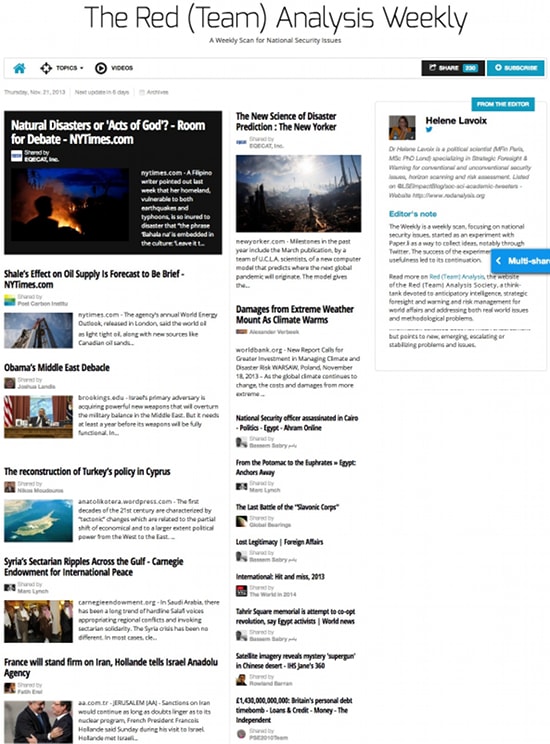Editorial – This week, three main themes stand out. They are unsurprising as we have been following them for a while, yet they show how difficult it may be to warn about an issue, i.e. to convince a client or an audience that a signal is neither noise nor anymore weak but strong (e.g. changes in the Middle-East for the U.S.), that warning may not be properly heard for self-interested reasons, but then with potentially more serious consequences (the crisis and legitimacy), and how (relatively) new signals may start emerging from older ones (e.g. Climate change, science and religion).
First of all, there is the Middle-East and the North-African region, which is definitely being redrawn, with an increasingly denounced blindness by the U.S. – which, of course, participates actively in the strategic evolution. I particularly recommend “Obama’s Middle East Debacle” by Michael Doran (Brookings). The uncertainties in Egypt and the increasingly worrying situation in Libya only add to the generalizing changes.
Then, we have the overall loss of legitimacy of the political elite and of governments that goes with the political aftermath of the financial crisis and the ongoing changes that were decided to answer it… despite ongoing beliefs that the crisis is over. This may well be the case, financially, both for a narrowing global class of happy few and for the enlarged, no less global, number of poor, as the two groups are now experiencing new opposite continuous realities. Yet, if the price to pay to obtain this new order was a loss of legitimacy, a new crisis, of a different kind, may well be looming, and the order may not last long.
Finally, there is climate change, extreme weather events, natural catastrophes and their multi-dimensional impacts, including – and this is where this week articles are so interesting – on the values and norms that are fundamentally legitimizing modernity, thus our political systems. The revival of religion versus, or maybe alongside, science is an important trend that should be integrated in our foresight and warning efforts, as a crucial factor.
Interestingly too, all of those themes interact and contribute to create the new strategic landscape in the making.
Click on the image below to read on Paper.Li


